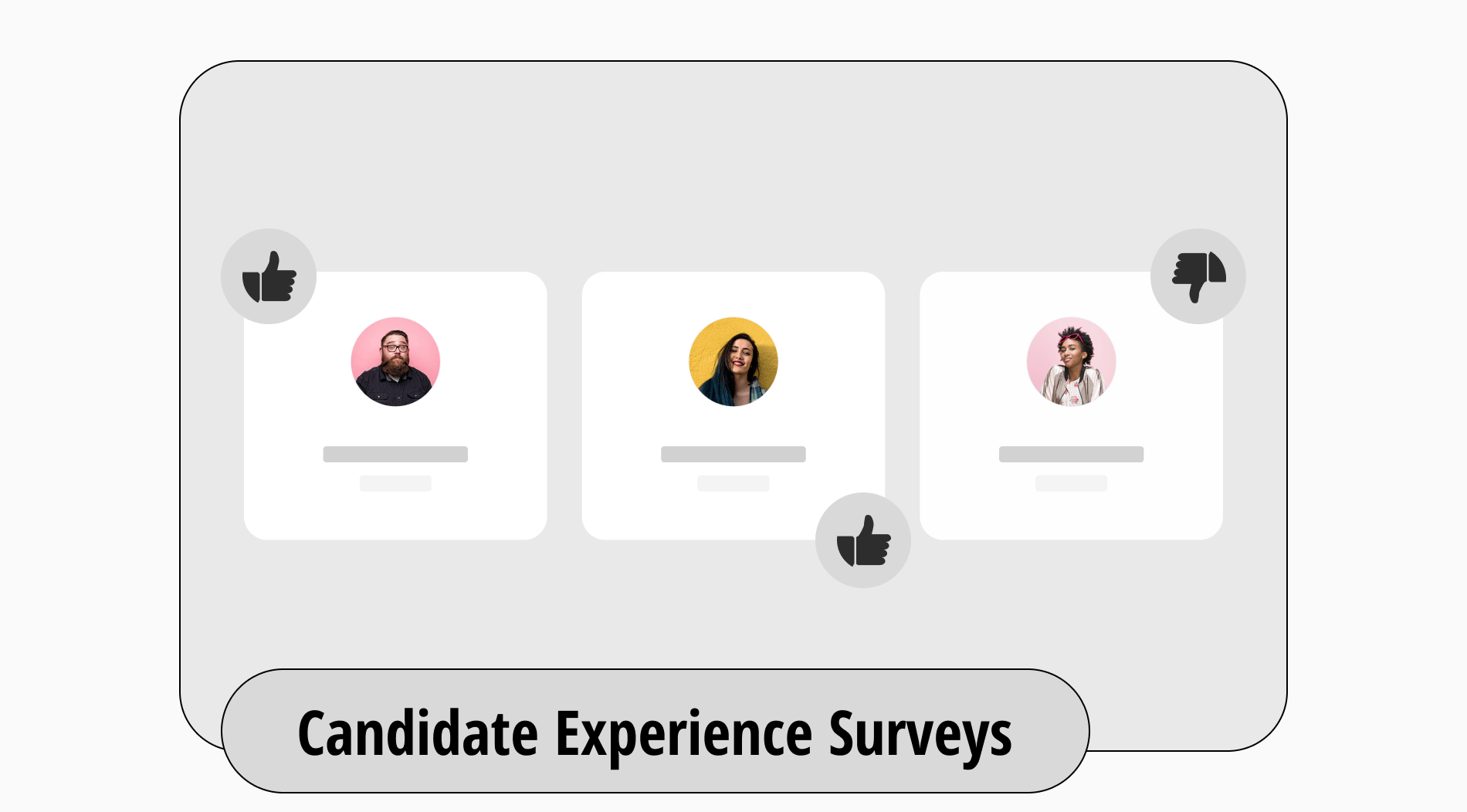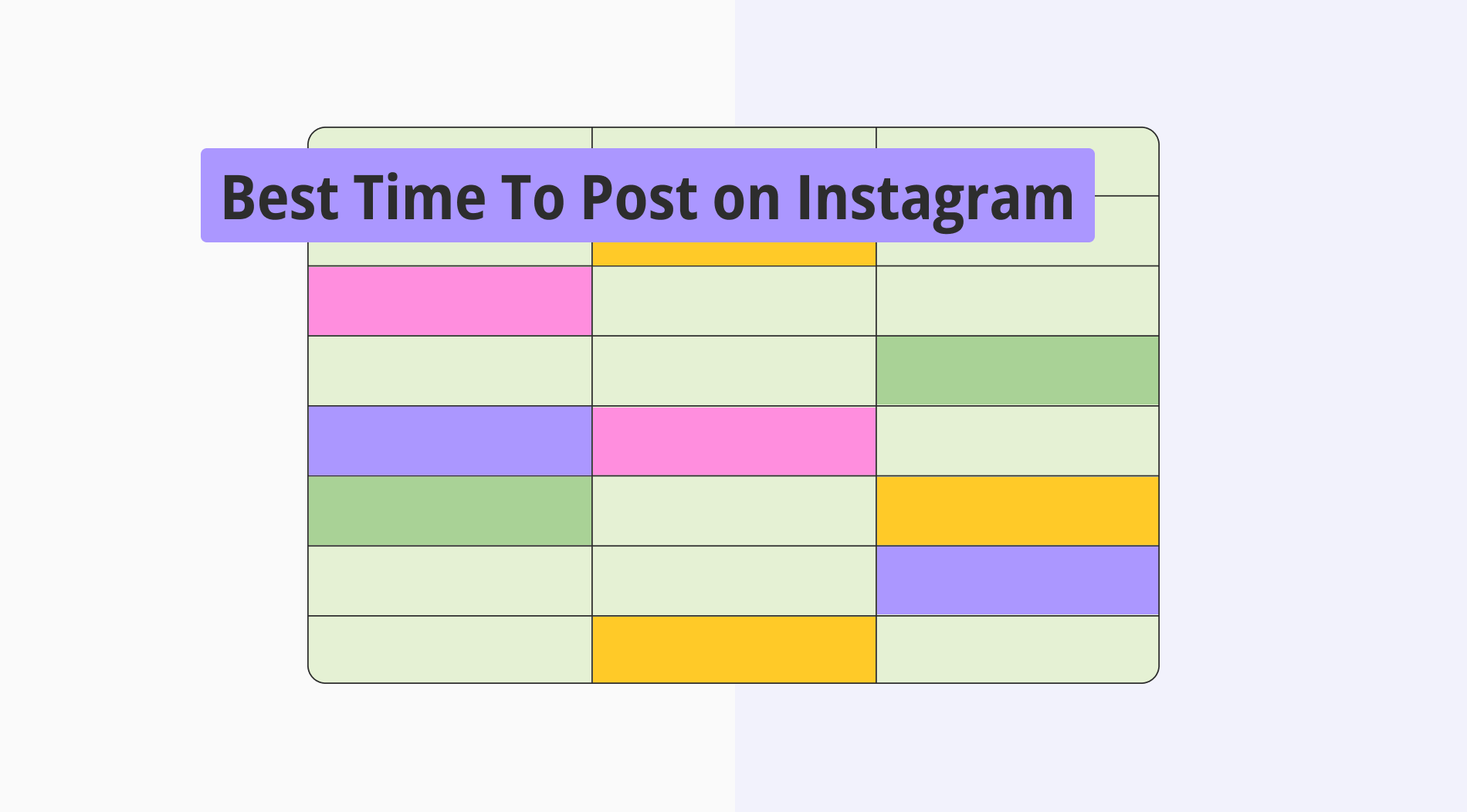Do you want to strengthen your business's position in recruitment? Candidate experience surveys are a great way to provide a positive candidate experience and improve your employer brand. They allow you to learn how potential employees perceive business during the interview process. By asking the right questions, you can develop recruitment strategies based on the gathered feedback you get.
In this article, we talk about what candidate experience surveys are, when to send candidate experience surveys, and their advantages. We include 13+ sample candidate experience survey questions you should ask in your survey. You can also find step-by-step instructions on creating a candidate experience survey on forms.app and best practices.
Let’s start with the basics: What is a candidate experience survey?
The candidate experience survey is a valuable and powerful tool that businesses use to gather feedback from job seekers about their application process.
It is usually carried out during or after job applications by HR professionals and allows you to measure candidate satisfaction throughout the candidate journey.
13+ Must-ask questions to ask in a candidate experience surveys
The questions you include are the most important when preparing a candidate experience survey. It would be best if you prepared a survey that meets your goals of becoming the employer of choice in the job market and talent acquisition. Below are some candidate experience survey examples that will help you gather valuable feedback about your hiring process:
1. How did you first hear about our company and the job posting you applied for?
Through this question can help you determine which sources candidates use to obtain information about your job offer and open positions. It will help you identify your adequate resources and reach more qualified candidates. You can also identify marketing channels where you need to improve and optimize your recruiting strategies to stay up to date.
- Through a job search website
- From a friend or colleague
- Through social media
- Through a company employee
- Through a job advertisement
- Through a university or college career center
- Through a previous internship or job experience
💡Additionally, you need to ensure that the questions you ask reflect the candidate experience survey meaning.
2. How satisfied were you with the communication during the application process?
You can ask this question to evaluate your candidates' satisfaction with the communication during the application process. Learning the communication channels preferred by candidates allows you to improve your communication during the recruitment process. This way, you can develop your next communication strategy in line with your candidates' preferences and increase your candidates' communication satisfaction level.
3. Did you find the job description consistent and informative?
By asking this question, you can evaluate whether the information in the job posting you have submitted regarding your open position is clear and accurate according to the candidates. Manual feedback lets you learn about candidates' complaints and concerns about the job description. This way, you can identify problems and update your job posting accordingly.
4. Were you given sufficient information about company values and culture during the interview?
Using this question, you can evaluate candidates' knowledge of your company's values and culture. The feedback you receive allows you to understand how compatible your candidates are with your company's values and culture. In this way, you can provide candidates with a positive experience by updating the information provided during the interview in line with the feedback you receive.
5. How comfortable did you feel during the interviews?
This question allows you to evaluate the candidates' general satisfaction level with their job application experience. It also allows you to determine how friendly and comfortable your recruitment process was. So you can make the necessary arrangements to make candidates feel comfortable. Candidates who feel comfortable express themselves better, and the interview is more productive for both parties.
6. How compatible was the hiring process with your expectations?
This question you ask candidates allows you to understand their general expectations about your recruitment process. It also allows you to find out if this process meets candidates' expectations. Learning the expectations will help you optimize your recruitment process in a more candidate-focused way and make the process more favorable.
- Very compatible
- Somewhat compatible
- Neutral
- Not very compatible
- Not at all compatible
7. Did you feel valued and appreciated during the recruitment process?
Through this question, you can evaluate how your candidates feel during recruitment. Knowing this helps you make the hiring process more candidate-focused. In line with your feedback, you can develop communication to make candidates feel more valuable and appreciated. If you feel valued and appreciated during the recruitment process, candidates will experience the process more positively.
8. What elements stood out as positive for you in the process?
This question allows you to learn about candidates' positive experiences during recruitment. You can improve the process by identifying and further developing practices that provide positive experiences. These positive experiences improve your employer profile and encourage potential job applications.
- Collaboration among team members
- Effective communication
- Efficient use of resources
- Innovative ideas and solutions
- Flexibility and adaptability
- Effective problem-solving skills
9. What aspects of the interview process that you find challenging or confusing?
This question can help you identify the difficulties and confusion that candidates experience during recruitment. It can also make the process more understandable and straightforward for candidates. Based on the feedback you get from surveys, you can improve the flow of your recruitment process.
- Answering tough interview questions
- Understanding the company culture
- Negotiating salary and benefits
- Communicating effectively during the interview
- Handling challenging interviewers
- Understanding the company's hiring process
- Understanding the job requirements and responsibilities
- Dealing with technical difficulties during the interview
10. Was the feedback given after the meeting helpful and constructive?
With this question, you can evaluate the feedback the candidates who participated in your survey received after the meeting. You can determine to what extent candidates found the feedback constructive and helpful. This way, you can improve your feedback-giving method in a candidate-focused way.
11. How likely will you recommend our company to a friend or colleague based on your candidate experience?
It is a Net Promoter Score question to measure your company's recommendability as an employer. It allows you to evaluate your company's overall satisfaction level as an employer. You can determine your company's employer brand, identify improvement areas, and do the necessary work.
12. Do you have any suggestions for improving our recruitment process?
You can use this question to collect feedback to evaluate and improve your recruitment process. To gather opinions and suggestions from candidates about your recruitment process, asking this open-ended question will allow you to get more comprehensive information. Based on the suggestions you receive from the feedback, you can develop the necessary strategies to make your recruitment process more efficient and positive.
13. Is there anything else you would like to add about your experience with our hiring process?
By asking this open triple question, you can offer candidates an opportunity to express their general experience with the recruitment process. This open question about overall expertise allows you to collect more comprehensive candidate feedback. You can make the necessary improvements and develop strategies based on your results.
How to create a candidate experience survey (step-by-step)
Conducting a candidate experience survey is valuable for keeping talented candidates engaged and increasing acceptance rates. You can use surveys, from hiring managers to hiring for the lowest position. Now, it's time to learn how to create these surveys. You can easily create your candidate experience survey by following the 5 steps below:
Step 1: Log in or sign up for forms.app
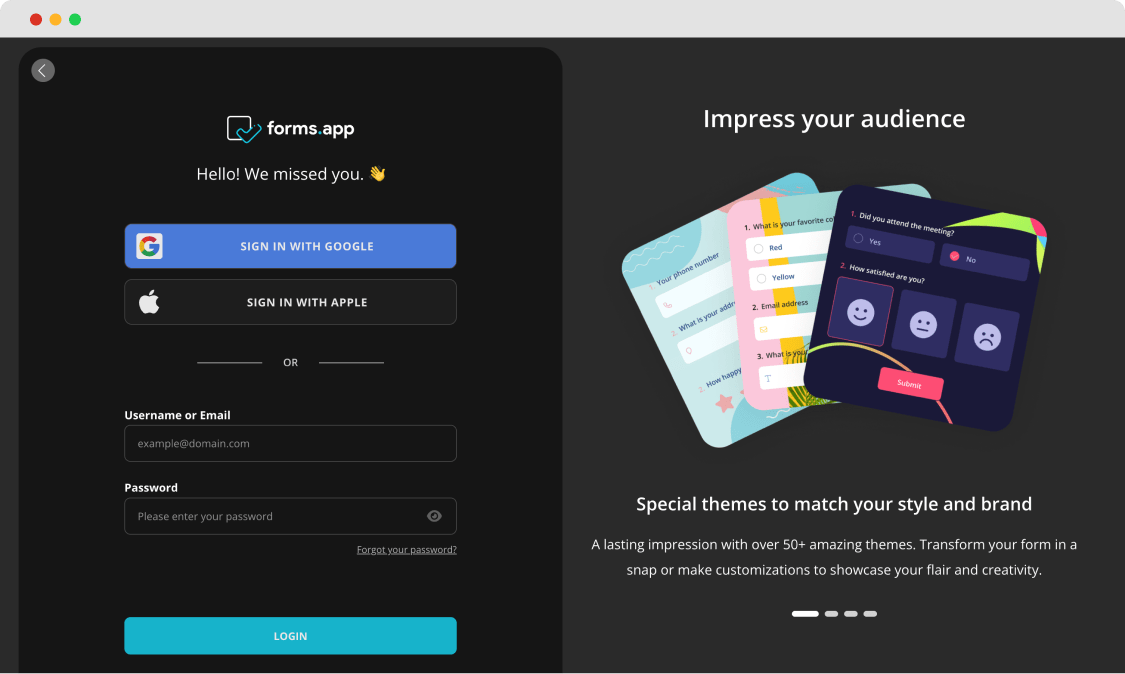
Log into your forms.app account
You can start to create a candidate experience survey by signing up for an account using the forms app. You can go directly to the platform if you already have an account. You can also log in or sign up using your Google, Apple, or Facebook accounts.
Step 2: Start from scratch, choose a template, or generate with AI
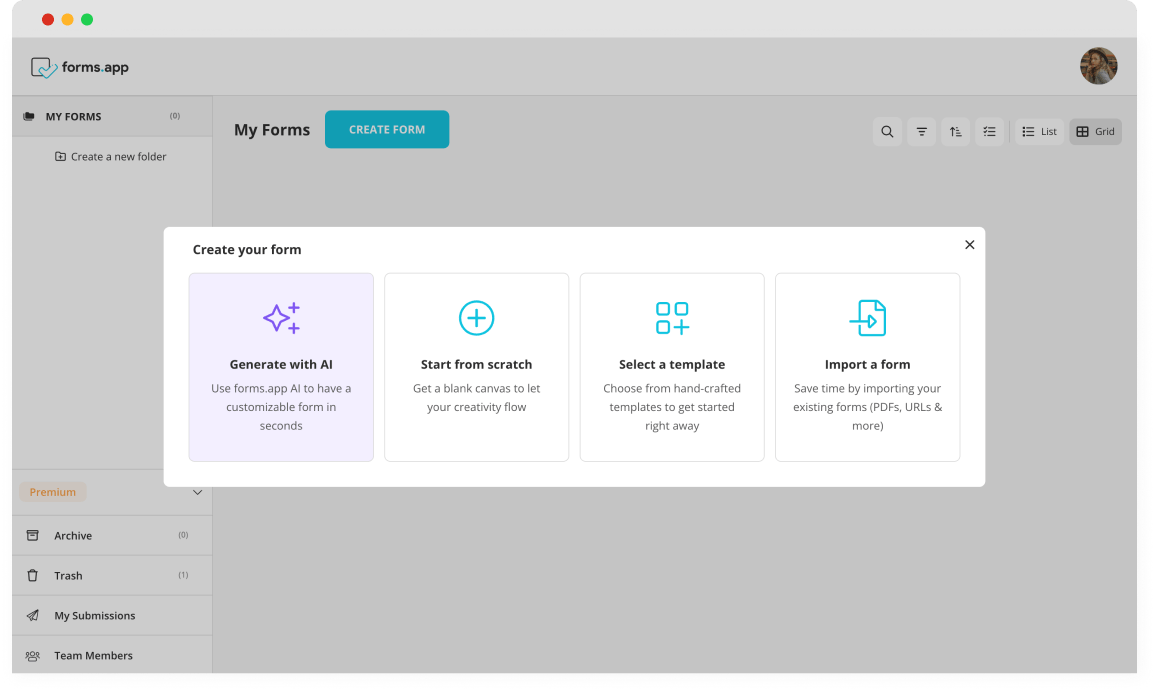
Choose a beginning option
Once logged in, click the Create Form button to create a new form. You can create your candidate experience survey for free according to your goals. You can also use other ready-made candidate experience survey templates on forms.app. Also, you can get help from forms.app AI for creating your survey.
Step 3: Add your questions
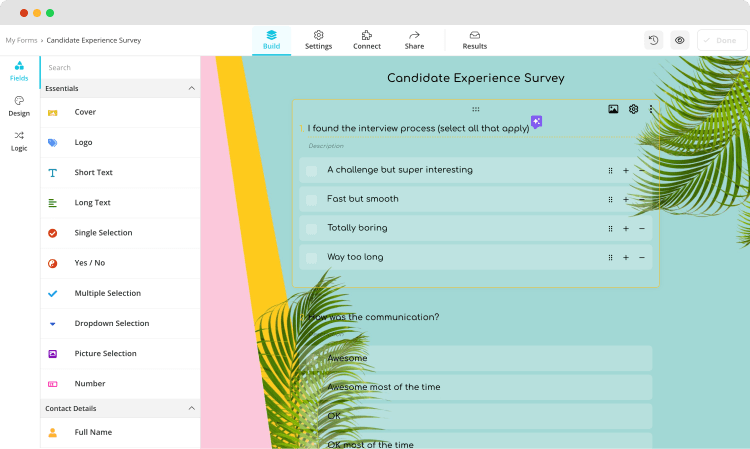
Add questions to your candidate experience survey
You need to add your survey questions according to your goals. The forms app offers a variety of question types, such as multiple-choice, short-answer, and long-answer. Adding your survey open-ended question types increases effectiveness and helps you comprehensively understand your candidates' views.
💡You can also look at the HR interview questions that we think are useful for you.
Step 4: Customize your form design
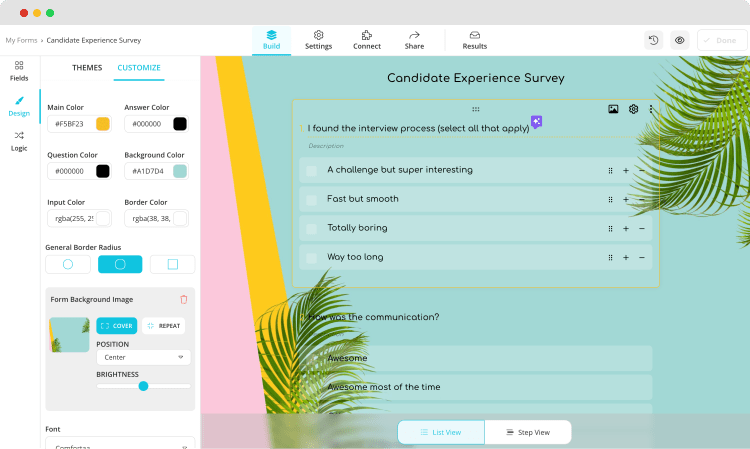
Changing the design of your survey
Once you have added all the questions, you can easily select a theme and change colors. You can enrich your form images, a logo, and a cover. You can tailor colors, fonts, and overall design tools to create a survey that mirrors your company's identity. Additionally, you can choose a new background image and a view type.
Step 5: Share your survey and analyze the results
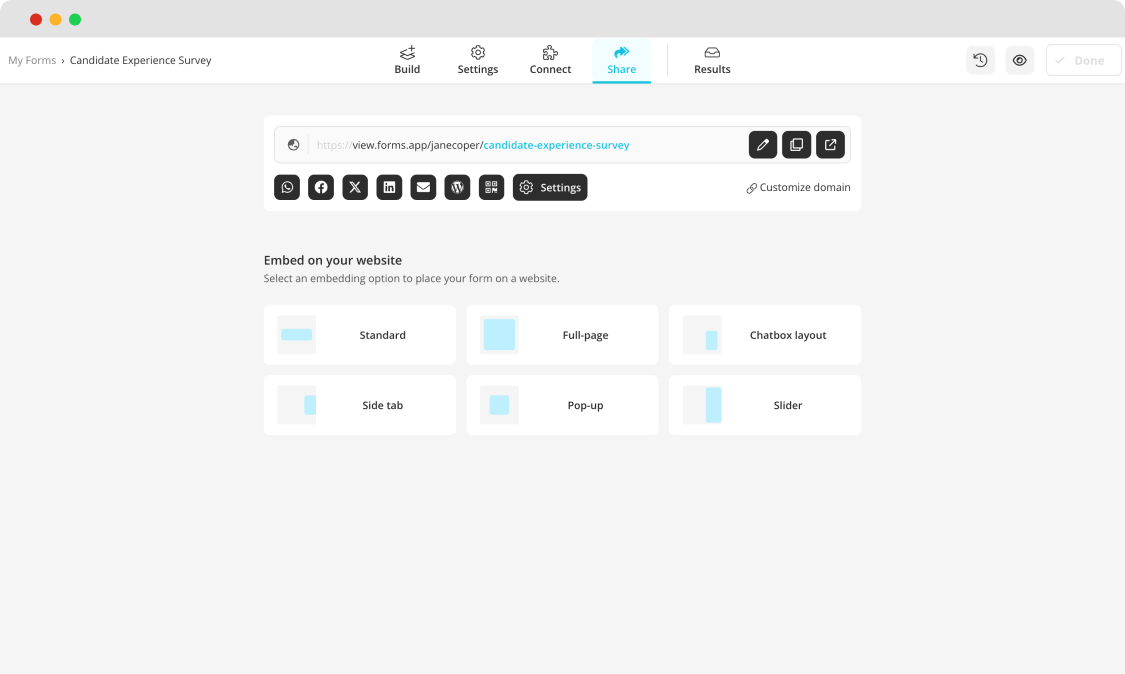
Share your survey
You can distribute your survey using various sharing options from the forms app. You can share your survey on social media platforms like Facebook, Twitter, Linked In, and WhatsApp. You can also embed your survey on your website and use QR codes. Once you gather sufficient data, you can use the forms app’s features, like statistics and filters, to analyze responses.
When to use a candidate experience survey
You've learned how to create a candidate experience survey. It's time to learn when to use a candidate experience survey. Candidate experience surveys are a tool that allows you to collect feedback from candidates at every stage of your recruitment process. Below, you can find out when you should use a candidate experience survey:
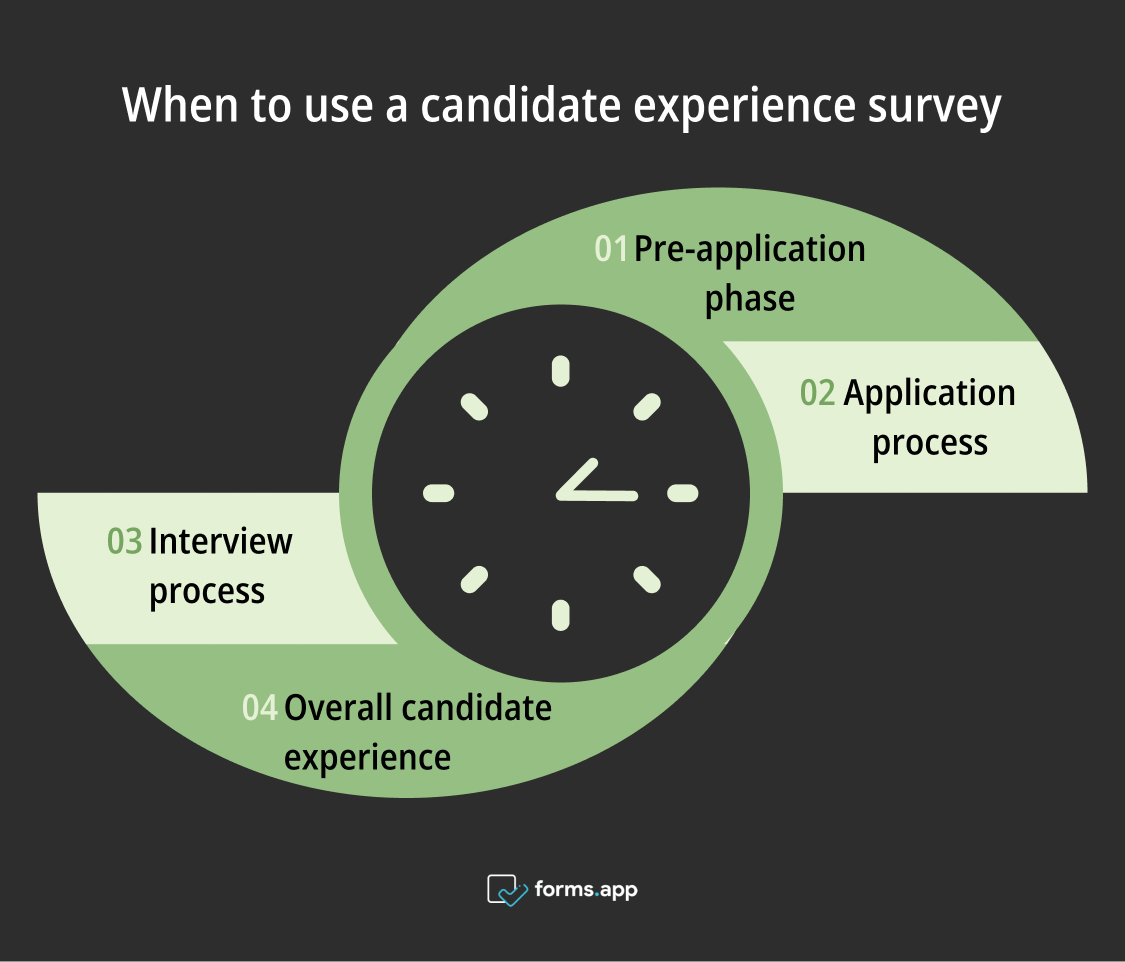
Right times to use a candidate survey
1. Pre-application phase
You can evaluate the candidates during the pre-application stage of the job application process. You can ask questions about the process, where they saw or heard about your ad, the clarity of the job description, and the position and requirements of your job posting.
2. Application process
During the application process, you can ask your candidates questions about how they went through and completed the application process. You can find out if there are any technical problems during the application process. You can ask whether they received timely confirmation that their application was received.
3. Interview process
During the interview process, you can ask questions to evaluate the experience of the candidates. You can find out how they assessed the clarity of your communication regarding the interview. You can also ask questions about the interview format, expectations, and the professionalism of the interviewers.
4. Overall candidate experience
In this step, you can evaluate your candidates' overall experience during recruitment. You can ask questions to measure the recommendability of your company and general candidate satisfaction. You can also ask what aspects of your hiring process need improvement.
💡You can also evaluate the satisfaction and loyalty of your employees after hiring by using engaging employee surveys.
Advantages of candidate experience surveys
Candidate experience surveys benefit your business and employer brand in many ways. You can understand candidates' feelings and thoughts by asking questions at every stage of your recruitment process. It allows you to optimize your hiring process and retain more qualified candidates. Below, you can find other benefits of candidate experience surveys:
- Candidate experience surveys help you collect process-related feedback directly from candidates regarding your recruitment process.
- Candidates' experiences during the recruitment process significantly affect your company's employer brand. Therefore, you can develop strategies to increase positive experiences based on the feedback you collect from candidate experience surveys.
- Based on the data you obtain from the survey, you can determine your company's strengths and weaknesses in the employee recruitment process. Thus, you can work on using your strengths effectively and improving your weaknesses.
- The positive candidate experience you provide due to the strategies you develop in line with the feedback you collect allows you to gain a competitive advantage in the job market.
Best practices for candidate experience surveys
Candidate experience surveys are an element that significantly affects your employer profile. By using these surveys, you can evaluate your candidates' application process and work to improve your recruitment strategy. So, what practices can you use to increase the effectiveness of these surveys? Here are some of the candidate experience survey best practices for you:
- It would be best to share your survey immediately after your candidate interacts with your company. Since their experience is up to date, the feedback you receive will be more current and accurate.
- Ensure your survey is short and relevant to the recruitment process to save candidates' time.
- Ask questions that address every stage of the hiring process. It will allow you to gain a more comprehensive understanding of the candidate's experience.
- Reassure candidates about anonymity and confidentiality to get more honest answers and increase participation.
- To increase accessibility and participation, make your survey compatible with mobile devices. It will give candidates quicker and easier access to your survey.
- You should send your survey to both the candidates you hire and reject. It will allow you to determine whether you made a positive impression on your rejected candidates.
Key points to take away
Candidate experience surveys provide potential employees with valuable information about how the company operates during the hiring process. They also allow for developing a more positive job candidate experience and strengthen the employer brand. You've learned all about candidate surveys. Create your candidate experience survey and benefit from its inevitable advantages.
In this article, we talked about what a candidate experience survey is and its advantages. We've covered how to create a candidate experience survey and over 13+ questions you can ask. We also discussed when to use them and best practices.
Işılay is a content writer on forms.app. She is passionate about advertising. This passion comes from the fact that she likes to make things interesting for people. She loves reading and writing. Işılay specializes in marketing, survey types, and program management.
- Let’s start with the basics: What is a candidate experience survey?
- 13+ Must-ask questions to ask in a candidate experience surveys
- How to create a candidate experience survey (step-by-step)
- When to use a candidate experience survey
- Advantages of candidate experience surveys
- Best practices for candidate experience surveys
- Key points to take away
